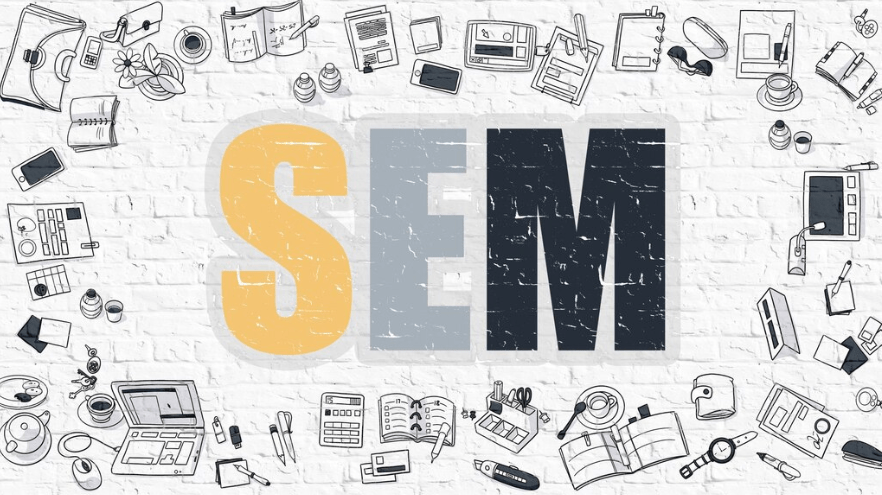Within the digital marketing space, different bidding strategies are very crucial.
One such strategy is called Enhanced Cost-Per-Click (eCPC).
But what exactly is eCPC? How does it function?
This article intends to address these issues. We will analyze the fundamentals of eCPC, its advantages, and how it can be applied efficiently.
This guide is for you, whether you are a digital marketer, a business, or even simply interested in PPC advertising.
So, be prepared as we move on to explain how this eCPC bidding strategy works.
ECPC – Definition And Understanding With Its Importance In PPC ?
Enhanced Cost-Per-Click (eCPC) is used as a bidding strategy in pay-per-click advertising (PPC).
It’s good for conversion delivery if you ever require adjustments to your bids.
eCPC automatically enhances manual cuts in focus when circumstances dictate that such cuts would enhance conversions or when existing data predict success. It relies on prior data to make this forecast.
This method can be an efficient method in your arsenal of PPC optimization techniques.
Let’s quickly note how the implementation works:
- It modifies bids started from the premise of the forecast about the probability of conversion to take place.
- It applies machine learning to make bids more effective.
- A conversion tracking tool is necessary.
- It could improve the ROI and allow for better allocation of the budget.
- He says there’s an ideal bidding scenario and appropriate ad copy, making it work best.
The Nature of ECPC: In What Ways Does eCPC Modify The Bidding?
eCPC can automatically modulate the amount the user is willing to pay per click.
It achieves this through the use of machine learning, which enhances its predictive capabilities.
By considering statistical evidence like preceding conversion history.
It uses this data to ascertain the clicks which are likely to result in a purchase.
Afterward, it increases the chances of a successful click while moderating the lesser potential opportunities.
ECPC versus Manual CPC: How They Differ?
CPC bid is usually subjected to more manual input than eCPC.
You can choose the highest amount that you are willing to pay for every prospective click but nothing more than this happens.
In contrast, one partial automated strategy, eCPC, allows for targeting on-click bidding and adjusts the bid amount depending on the history of clicking.
Reason Why Conversion Tracking is an Integral Part of ECPC
Conversion tracking is another important aspect of using eCPC.
It enables the system to get acquainted with which clicks occasion desirable activity by the user.
In the absence of this information, eCPC would be hamstrung in terms of targeting effective bid exaggerations.
Sourcing Machine Learning Techniques: Real-Life Use Cases of ECPC Strategies
Machine learning is a core function of eCPC.
It is able to assess past data such that it can figure out which clicks are worth pursuing in the future.
With this active optimization, you can achieve great results in your campaign.
The Benefits of Implementing ECPC in Your Campaigns
eCPC, when employed in your PPC campaigns, will profit your campaigns in many aspects.
- First of all, it can sometimes allow you to get better ROI. By seeking the most promising clicks, getting much better mileage out of the ad costs is possible.
- Second, eCPC helps you spend your budget wisely. It alters the bids in real time and assures that the most productive clicks are sponsored.
Addressing the Limitations and Challenges of ECPC
Despite the substantial advantages of eCPC, a self-serving biased approach is not all still possible; there are many weaknesses. The most common weakness cited is its reliance on an extensive past conversion database.
The eCPC may not work efficiently when a campaign is new or has modest conversion data. It requires a significant amount of data to forecast and modify accurately.
One major disadvantage is cost increases, where cost per conversion becomes higher. eCPC increases conversions. However, the CPC might also increase in a highly competitive market. Careful monitoring of the campaigns is required so that the campaign remains cost-effective.
Setting Up ECPC: A Step-by-Step Guide
eCPC is simple to set up, though it needs precise execution. The foremost thing that you should do is to make sure that conversion tracking is in place. Without tracking the conversion, eCPC will not be able to get the required data to adjust the bid amounts.
Once you have conversion tracking in place, the next step is to enable enhanced CPC in your campaign. Follow these simple steps:
- Head towards setting up your campaign on Google Ads by going to the My Campaigns tab.
- Look for the Bidding section and scroll down.
- Click ‘Change bid strategy.’
- Select the Enhanced CPC option in the drop-down list.
Remember that eCPC is not about setting and going away strategies; its key basic habit is consistent check-ins and the adaptation of measures as necessary to be successful.
Best Practices for ECPC Optimization and Management
A few considerations must be kept in mind when using eCPC for better efficiency.
- First, proper and complete conversion tracking is important. This will ensure that eCPC has enough information to provide reasonable bids.
- Second, be fine with altering the settings. Although the majority of bidding is automatic through eCPC, it sometimes gets things wrong. Your bids do not need to remain constant; constant surveillance and manual changes are important.
- Lastly, exercise a lot of patience. eCPC employs a machine learning algorithm that improves with time. Allow ample time for it to learn and adjust for the best performance.
Wildnet Technologies is one of the leading digital marketing companies in India that offers AI-infused PPC services. Our PPC services have helped 4,100+ clients generate a ROAS, or Return on Ad Spend, of 4X on a Media spend of more than USD 43 million.
Read More
- What Are Two Ways Google Ads Can Fuel Your Business Goals?
- How Many Responsive Search Ads Can You Have In Google Ads?
- How can google ads use audiences from google analytics when the two are linked?
- Which of the following is a core benefit of Google ads automated bidding?
- How every Google Ads bid strategy helps in driving the campaign to success
- Harnessing AI for Google Ads: Smarter Ads Campaigns
Faq
1. What is Enhanced Cost-Per-Click (ECPC)?
ECPC is a Google Ads bidding strategy that adjusts your manual bids based on the likelihood of a conversion. It raises bids for clicks likely to convert and lowers bids for those less likely to convert, optimizing for conversions while keeping the average CPC close to your set bid.
2. How does ECPC differ from manual CPC bidding?
Unlike manual CPC, where you set a fixed bid for keywords, ECPC adjusts your bids automatically using machine learning to increase or decrease them based on conversion probability while still giving you control over your maximum bid.
3. Will ECPC increase my costs?
ECPC won’t necessarily increase your costs. It aims to maximize conversions within your budget. While individual bids may go up or down, the strategy keeps your average CPC close to your manual bids and improves your overall return on investment (ROI).
4. Do I need conversion tracking to use ECPC?
Yes, conversion tracking is essential for ECPC. The strategy relies on historical conversion data to predict which clicks are most likely to lead to conversions, enabling it to adjust bids accordingly.
5. Can ECPC be used with all campaign types?
ECPC works with both Search and Display campaigns in Google Ads. However, for maximum effectiveness, it’s recommended for campaigns that already have some conversion data so that the system can learn and optimize effectively.






